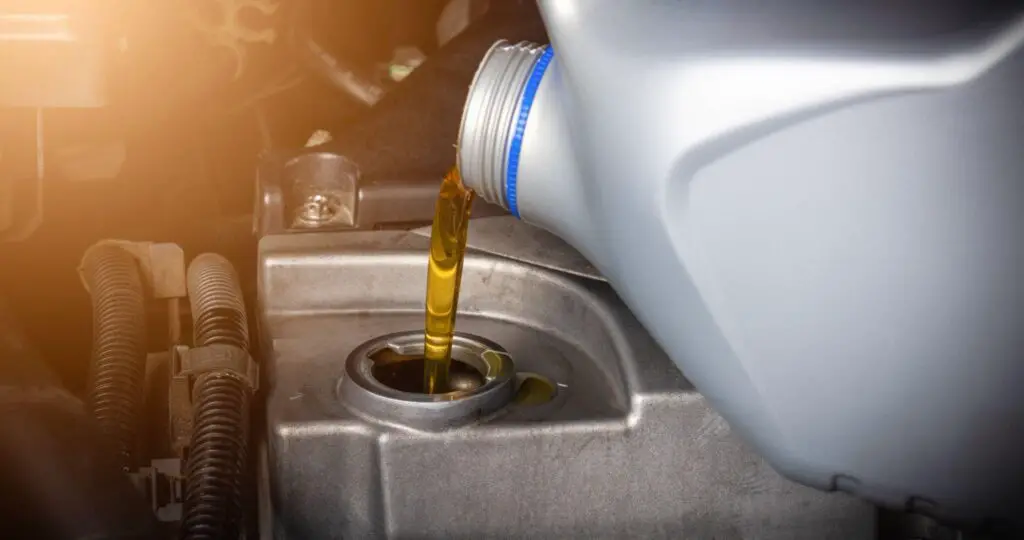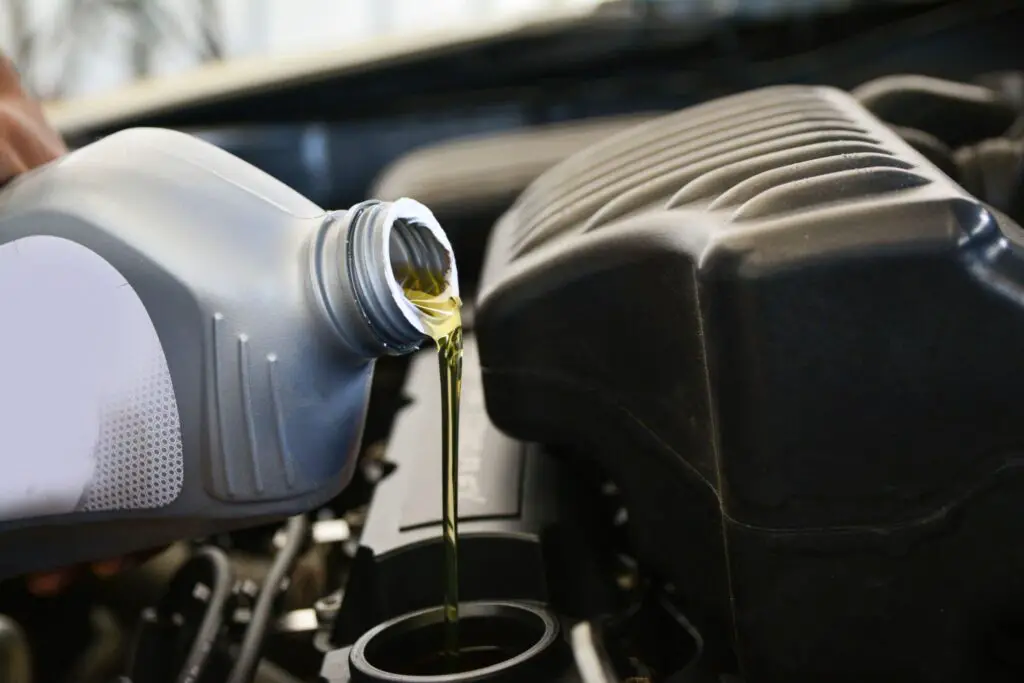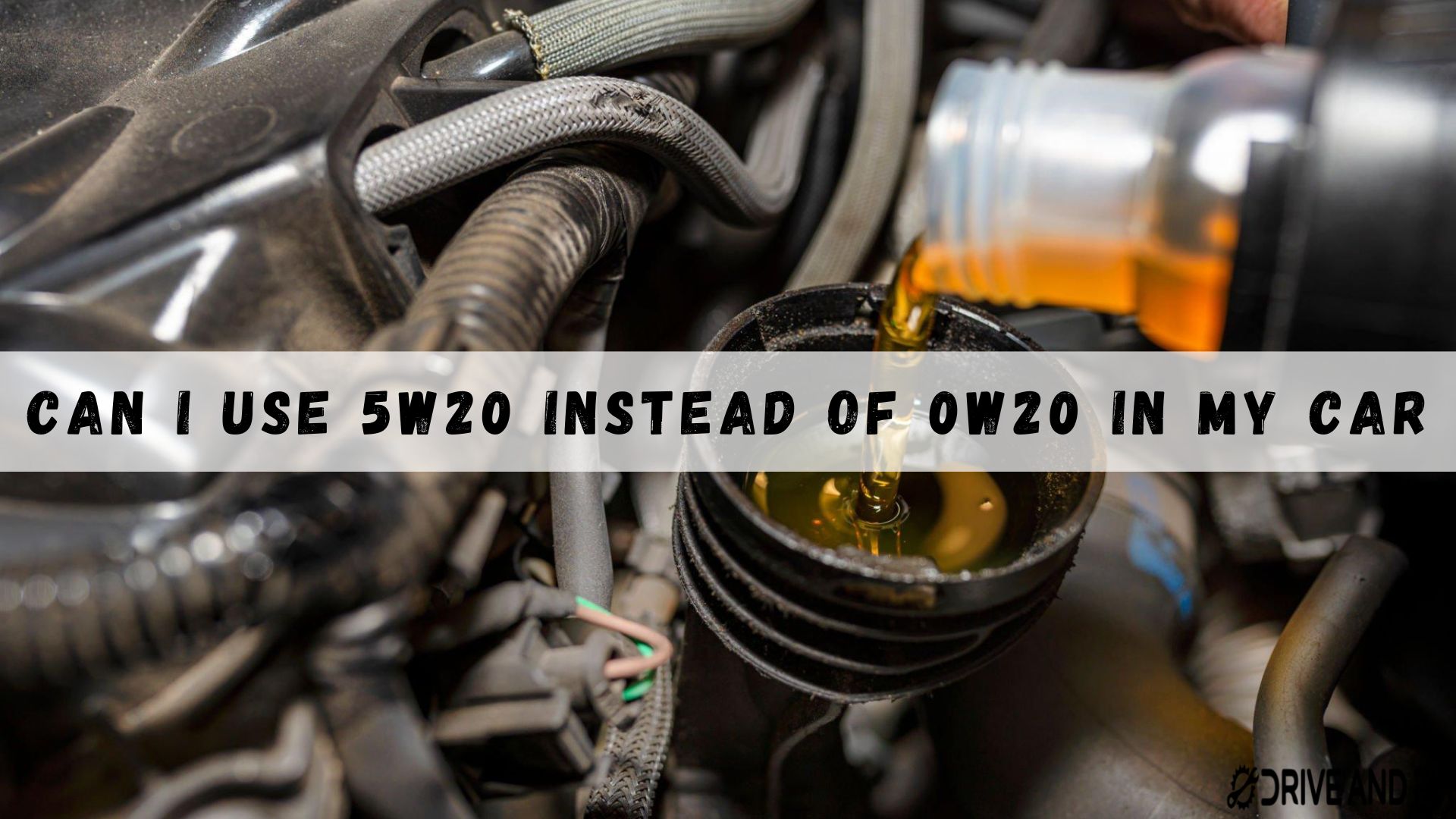Your vehicle’s choice of motor oil can significantly impact its performance and longevity. Viscosity, or the thickness of the oil, plays a crucial role in ensuring that your engine is properly lubricated and protected, especially during start-up. Two standard oil viscosity ratings are 5W-20 and 0W-20, and understanding the difference between them is crucial in making an informed decision for your vehicle.
Here, we will thoroughly address your question: can I use 5w20 Instead of 0w20 in my car, the implications of using 5W-20 oil instead of 0W-20 oil, and the importance of following your vehicle manufacturer’s recommendations? Whether you are a seasoned mechanic or just a car owner looking to make informed choices, this discussion will provide valuable insights into the world of motor oils and their impact on your engine.
Differences Between 5W-20 And 0W-20 Oil

The numbers in motor oil viscosity ratings, such as 5W-20 and 0W-20, refer to the oil’s flow characteristics at cold temperatures. The “W” in the rating stands for “Winter” and refers to the oil’s viscosity at low temperatures, while the number (20 in this case) refers to the oil’s viscosity at higher temperatures.
A 0W-20 oil formulation is specifically of low viscosity or flows more readily at cold temperatures, making it ideal for use in areas with severe winter conditions. This low viscosity allows the oil to circulate more quickly through the engine, providing better protection during engine start-up when oil flow is most critical.
In comparison, 5W-20 oil is thicker at cold temperatures, so it will not flow as easily or provide as much protection during start-up as 0W-20 oil. However, it may be more suitable for use in areas with less severe winter conditions or engines that do not require the added protection provided by a 0W-20 oil.
Using the wrong viscosity oil, such as a 5W-20 instead of a 0W-20, can negatively impact engine performance and longevity. Always refer to your vehicle manufacturer’s recommended oil viscosity and specifications to ensure you use the right oil for your engine.
Can I Use 5w20 Instead of 0w20 in My Car – Pros And Cons

Yes, you can, but it’s not recommended. Using 5W-20 oil instead of 0W-20 oil in your engine can have both advantages and disadvantages.
Pros:
- Better lubrication: The thicker viscosity of 5W-20 oil provides better lubrication, reducing friction and wear on internal engine components, which can extend the engine’s life.
- Improved engine performance: 5W-20 oil improves engine performance, especially in older vehicles or those with high mileage.
- Increased compatibility: 5W-20 oil is more widely available and compatible with a broader range of vehicles, making it easier to find the right oil for your engine.
- More readily available: 5W-20 oil may be more widely available than 0W-20 oil, especially in less severe winter conditions.
- Cost-effective: 5W-20 oil may be less expensive than 0W-20 oil.
Cons
- Reduced protection: As mentioned earlier, 5W-20 oil is thicker at cold temperatures, so it will not flow as easily or provide as much protection to the engine during start-up compared to 0W-20 oil.
- Reduced fuel efficiency: Thicker oils can increase engine friction and decrease fuel efficiency.
- Possible engine damage: Using oil with the wrong viscosity can cause engine damage, such as increased wear and tear on internal components or decreased engine performance.
The impact of using 5W-20 oil instead of 0W-20 Oil

Using 5W-20 oil instead of 0W-20 oil in your engine can hurt engine performance. Some of the potential effects include:
- Reduced protection during start-up: 5W-20 oil is thicker at cold temperatures, so it will not flow as easily or provide as much protection to the engine during start-up compared to 0W-20 oil. This can lead to increased wear and tear on internal components, especially during the critical start-up period when the machine is most vulnerable.
- Reduced fuel efficiency: Thicker oils can increase engine friction and reduce fuel efficiency, leading to decreased engine performance and higher fuel consumption.
- Possible engine damage: Using oil with the wrong viscosity can cause engine damage, such as increased wear and tear on internal components or decreased engine performance.
The impact of using 5W-20 oil instead of 0W-20 oil will depend on several factors, including the severity of winter conditions, engine design, and driving conditions. It is always best to follow your vehicle manufacturer’s recommended oil viscosity and specifications to ensure optimal engine performance and longevity.
How to Determine The Recommended Oil Viscosity
Find the correct oil viscosity for your vehicle in the owner’s manual or engine specifications. It could also be the oil filler cap or oil dipstick listing in your engine.
If you cannot find the recommended oil viscosity in any of these places, consult your vehicle dealer or a professional mechanic. They will provide the correct information based on your vehicle’s make and model, engine design, and driving conditions.
Note that your vehicle’s oil viscosity may change depending on age and type. Hence, it is a good idea to check regularly and follow updates from your vehicle manufacturer.
Read Also: Does Diesel Evaporate From Car Tank? What You Need to Know
Consequences of Not Following Manufacturer’s Specifications
Failure to adhere to your vehicle manufacturer’s oil viscosity recommendations and specifications can have several consequences, including:
- Increased wear and tear on internal engine components: Your vehicle will suffer damage to the internal engine components, especially during the critical start-up period when the engine is most vulnerable.
- Poor engine performance: Using oil with the wrong viscosity can increase engine friction and reduce fuel efficiency, leading to a decrease in engine performance and higher fuel consumption.
- Engine damage: Over time, using the wrong oil viscosity can lead to engine damage, including a high rate of wear and tear on internal components, low engine performance, or even engine failure.
- Voiding of warranty: You may be responsible for engine-related repairs or maintenance costs.
Final Thoughts
Choosing the suitable oil viscosity for your vehicle is essential to ensure its performance and longevity. Can I use 5W-20 oil instead of 0W-20 Oil? While both 5W-20 and 0W-20 oil have unique properties, always follow your vehicle manufacturer’s recommendations on viscosity to avoid potential engine damage and decreased performance. Remember to regularly check for updates and recommendations, and consult with your vehicle dealer or an authorized mechanic if unsure. These guidelines will help keep your vehicle running smoothly and efficiently for years to come.
Now, let’s dive deep into the question can a stuck open thermostat cause coolant loss? Let’s explore together.
Our Popular Post:
What If I Accidentally Put Premium Gas Into My Car?
Is it OK to Sit in Car with AC On? Here’s the Answer
How Often To Change Engine Air Filter Toyota?


